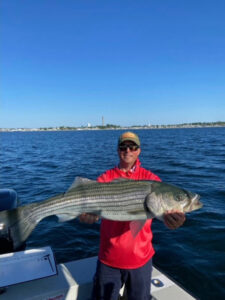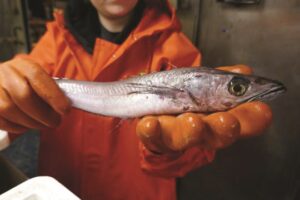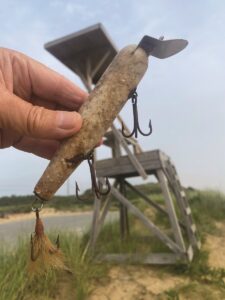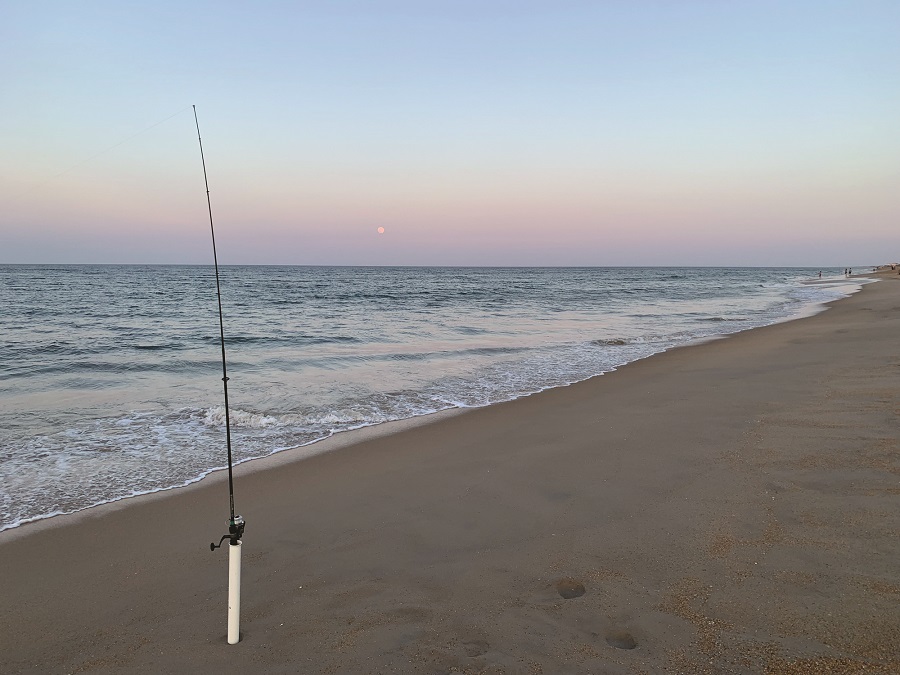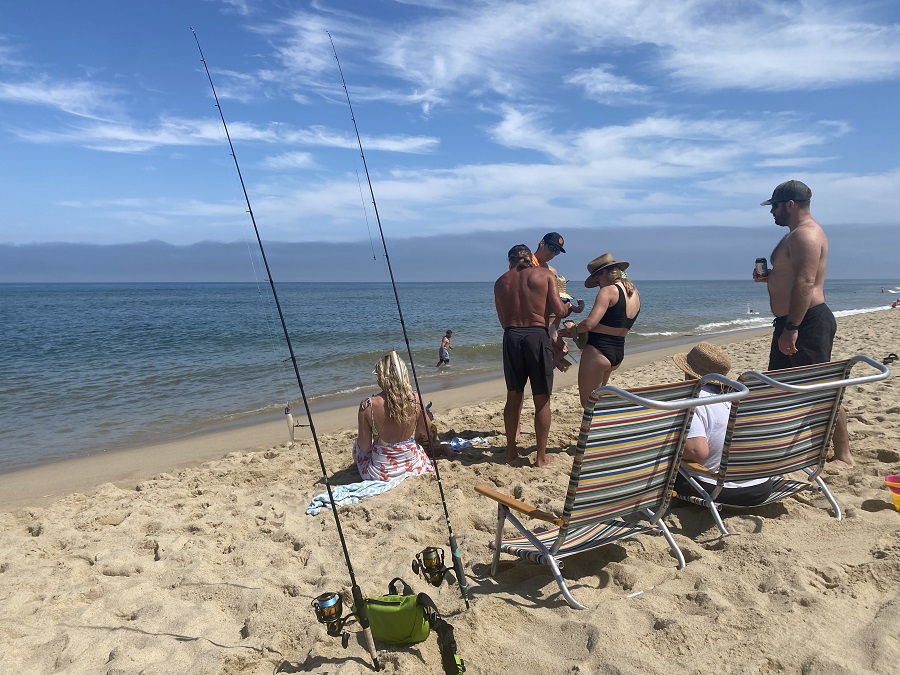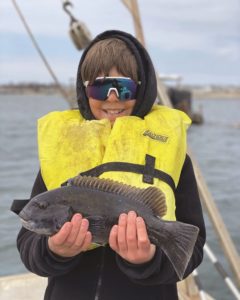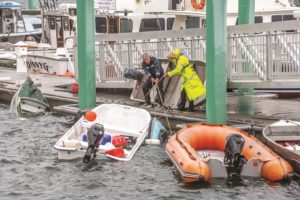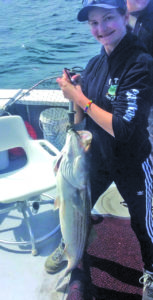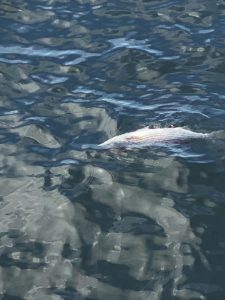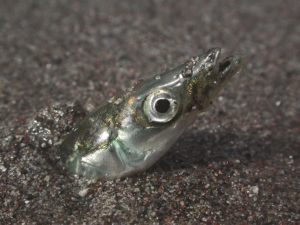Striped bass fishing slowed this past week, as the fish seem to have moved out of the bay, and the few that are around are down on the ocean side from the Race Point Station east to Highland Light.
They had a fairly poor bass season south of us. Here, though, we’ve been holding out hope that maybe the fish changed their migration pattern and came north farther offshore this year, holing up where they can’t be legally fished but ready to move in any time. I do not want to sound like Mr. Doom-and-Gloom here, but right now things are looking rather inauspicious.
By now we usually have solid fishing from the Twin Hills behind Long Point to the Race Point Station. There are baitfish everywhere, notably pogies, sand eels, and mackerel, so a lack of food is not the reason we’re not seeing bass in big numbers.
Fishing being what it is, we all know the situation can do a 180-degree turnaround tomorrow. If and when it does, we’ll breathe a collective sigh of relief. But at the moment most of us are scratching our heads and wondering what’s going on.
Flounder fishing has still been good in depths of 25 to 40 feet from the Pamet all the way down to the sea buoy off Sesuit Harbor.

Old Thom the orca whale has been spotted off Chatham. The sighting, reported June 2 by the Atlantic White Shark Conservancy, was the first of this season. Old Thom is a male North Atlantic orca known for being the only orca to routinely be seen both in the Gulf of Maine and in the Bay of Fundy. He is a loner whale, which is very unusual for these toothed creatures that typically travel in pods. Old Thom has never been seen with other orcas. He is often seen in the company of Atlantic white-sided dolphins, however. They seem to feed alongside him at times.
With the steady increase in the population of seals and the gradual increase in bluefin tuna, perhaps we will see Old Thom hanging around a little more. Maybe these animals, both among the orca’s preferred prey, will attract some other orcas to the area. Since just last year, Orcas have been observed hunting Atlantic white sharks, apparently prizing their livers, according to a BBC news report published in March citing the African Journal of Marine Science.
An unprecedented sighting that was reported in the Indie on June 6 really put the changes on our planet in view: a single flamingo was seen and photographed at Chapin Beach in Dennis. Flamingoes are usually seen in large flocks and are very much a tropical animal. Long Island has a few pelicans; now Cape Cod has a flamingo. Plus, tropical fish such as triggerfish and cobia have been caught in Buzzards Bay, and mahi mahi have been caught out in the deep waters off Martha’s Vineyard. Meanwhile lobsters continue to migrate out of Long Island Sound and to some extent, it appears, from Cape Cod Bay, moving toward Maine.
As I track all this, I think about what things will be like if we can’t reverse course on at least some climate trends. Will we even recognize our natural habitat in the not-so-distant future?
